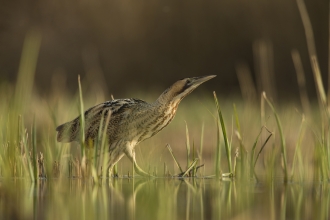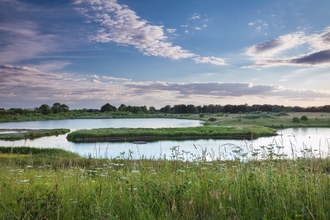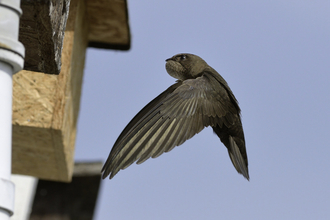Bitterns were once declared extinct in the UK, but due to conservation efforts in recent years are starting to make a comeback. They are still very rare in Yorkshire with roughly 20 breeding pairs last on record, and can have up to six eggs - so the Trust is hopeful visitors will be treated to more juvenile sightings in the days and weeks ahead.
Bitterns are not the only exciting breeding success at North Cave Wetlands this summer. The Trust was delighted to find a clutch of pochard chicks on the reserve; common pochard, a medium-sized diving duck, are on the IUCN red list of threatened species with only around 80 pairs breeding in Yorkshire.
Yorkshire Wildlife Trust’s reserve manager Tony Martin says, “We have had overwintering bitterns at North Cave Wetlands for a number of years, but bitterns need two healthy reedbed areas to breed successfully, as they use one for nesting and another for feeding. These sightings are the latest success at one of our flagship reserves, and it’s heartening to see our careful management of this wild spaces is having huge benefits for Yorkshire’s wildlife.”
The Trust’s ongoing partnership with Breedon Ltd has seen the reserve gradually expand from its original 40 hectare site in 2001 to its current size of 140 hectares, with each completed area of quarrying progressively restored by Breedon Ltd with wildlife in mind before being passed over to the Trust’s management. Dedicated works by the Trust to plant over 30,000 reed plugs in partnership with Breedon Ltd and with the help of volunteers has helped to create important habitat which will soon grow into the mature reedbeds bitterns prefer – such as where the juvenile bittern has been spotted this year.
Tony continues, “These successes emphasise the value of wetlands for wildlife, and the importance of providing more space for nature. Our ongoing work to manage North Cave Wetlands as an ever-increasing wild haven shows that dedicated time and attention to wildlife is vital if we are to turn the tide on the biodiversity crisis.”



